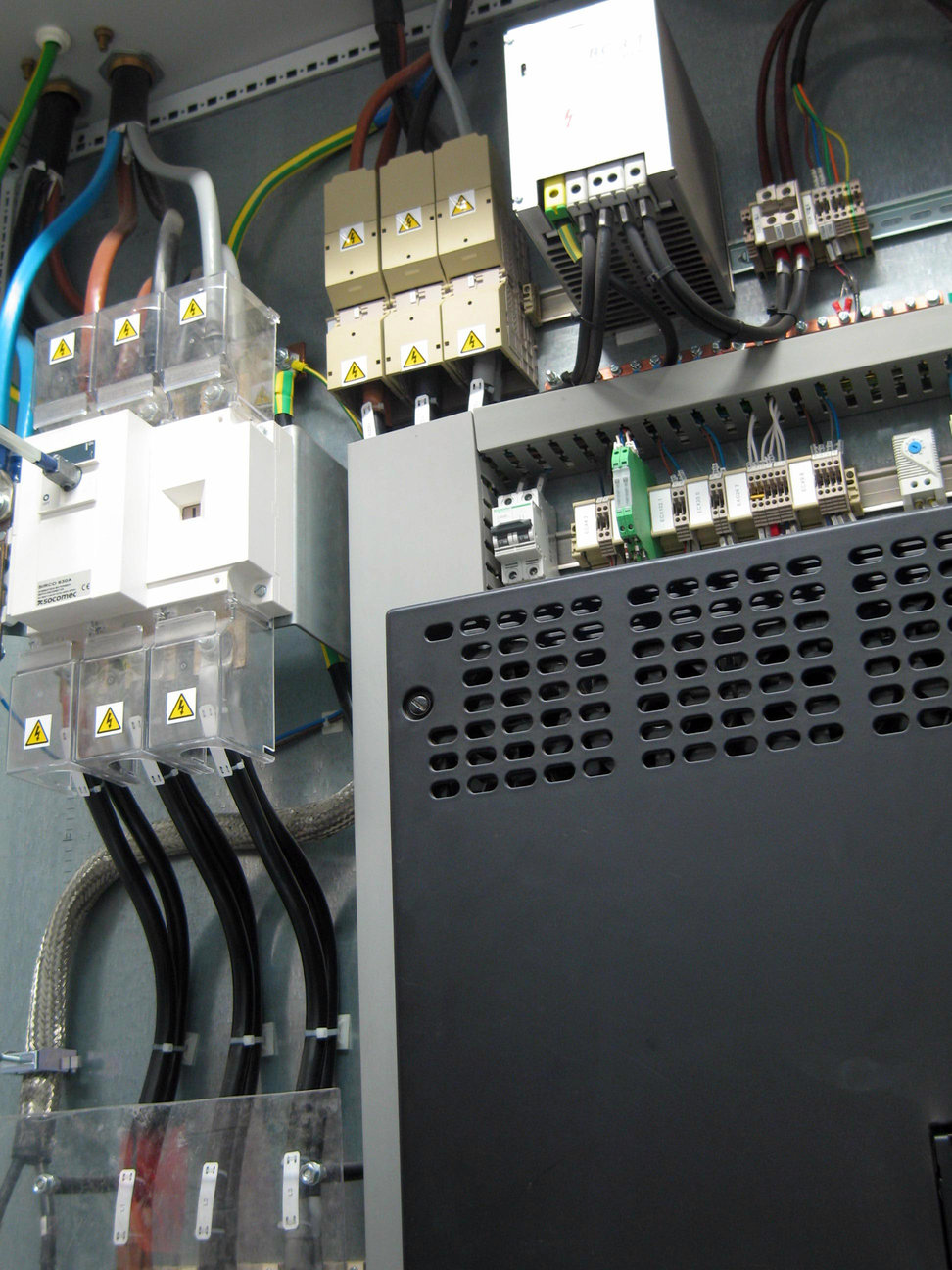Usually, fans do not need a braking resistor and chopper. However, when operating in a closed system, fans are at risk of over-speeding, causing the DC voltage on their motor drives to rise. John Mitchell reports
Fans don’t normally need a braking resistor and chopper but when they are operating in a closed system, a situation may arise where one fan will over-speed the next and the DC bus voltage on their motor drives will then rise.
External dynamic braking choppers are useful to drive manufacturers, panel builders and end users alike. A seventh IGBT (Isolated-Gate Bipolar Transistor) for the chopper in a six-pulse drive is one way drive manufacturers can reduce the cost of the product by rating the IGBT to a given torque and duty level. Some six-pulse off-the-shelf AC drives manufactured today have a seventh IGBT built in as standard.
The calculation for sizing the internal brake chopper is not a difficult one, but getting accurate data in the first place can be. Some brake choppers on board a drive range from 25% to 100% ratings. And let’s not forget the fact that not all drive manufacturers fit a seventh IGBT above ratings of 22kW.
To this end, where it is too expensive to change the installed drive or where regenerative energy has been overlooked, CP Automation offers a range of external brake choppers that covers 99% of application needs up to 360kW peak, 100kW continuous.
Available in nine models across three frame sizes, there are several options to set the threshold to the desired switching level, along with fault output and master-slave options to chop higher power levels.
External brake chopper units should allow for a fit and forget procedure. During emergency stops the unit will still function – because it is powered by the DC bus and not by an external supply. These were key features for a fan application at GA Pet Food Partners.
GA Pet Food Partners, Leyland, Lamcashire, UK, works with some of the biggest pet food businesses in the world. However, it doesn’t manufacture an own label product because it doesn’t believe in having an own brand. It sees itself as a partner, not a competitor, to its customers.
From concept to launch and storage to dispatch, the company claims it partners with more private label pet food brands than any other pet food manufacturer, making it easy and profitable for pet food brands to launch and grow their business.
GA Pet Food Partners operates an environmental extraction system comprised of three parallel 185kW ABB Motors spinning the Halifax fans cascading into smaller fans, and was encountering difficulty in decelerating the biggest of these units. The effect of over-speeding becomes cumulative the more fans there are in close proximity on a factory floor.
The three large fans are controlled by Allen Bradley Powerflex 753 variable speed drives (VSDs) from Rockwell Automation, which count among their features predictive diagnostics to extend the life of cooling fans.
“In an environmental extraction system, if a fan runs too fast, it either pressurises air too much at one end or creates suction at the other,” explained Jayne Whittaker, engineering director at GA Pet Food Partners.
“Some machines on the shop floor have exhaust fans, which need to run at the appropriate speed. CP Automation supplied external brake resistors and retrofitted brake choppers within the existing panels that house the Allen Bradley drives.”
Advanced extrusion
The new GA Pet Food Partners factory is home to the most technically advanced extrusion plant in the world, making some of the finest super premium dry pet foods. GA Pet Food Partners has invested in the world’s first thermal twin extruder, which allows it to include very high levels of fresh meat in premium dry pet foods without the use of dry meat meals.
With four extruders, the company has a production capacity of 100,000 tonnes of super premium pet food and can make batches from 3-200 tonnes to suit small or large brands, delivering the same quality and consistency whatever the batch size.
A reliable electrical equipment provider should have a clear understanding of the application as a whole, the machine itself and the components. This way, CP Automation is able help make the manufacturing process more efficient, more cost effective and more sustainable in every sense.
John Mitchell is business development manager of CP Automation.
